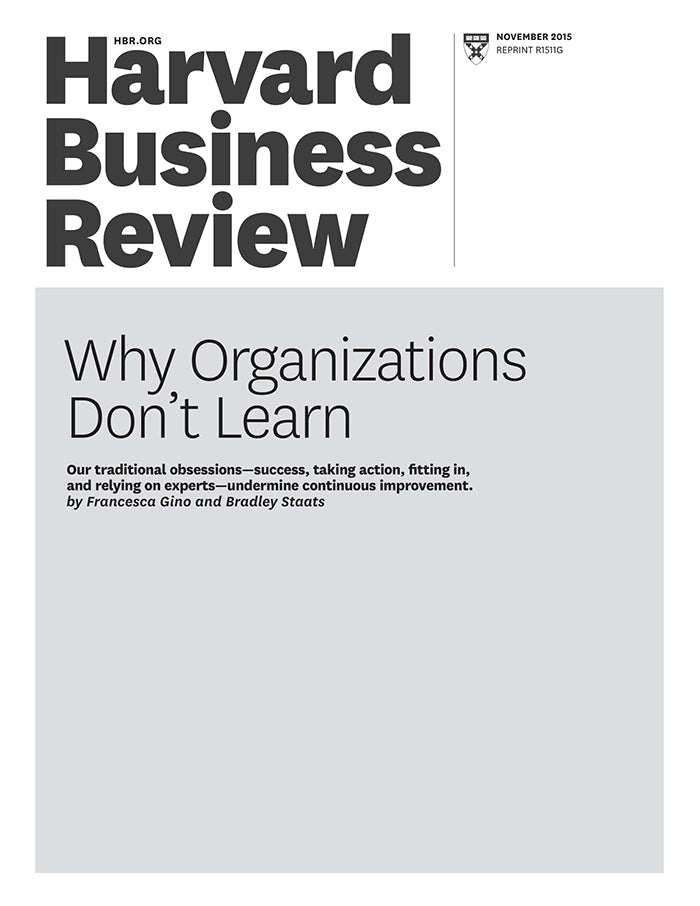Why Organizations Don't Learn
受取状況を読み込めませんでした
For any enterprise to be competitive, continuous learning and improvement are key--but not always easy to achieve. After a decade of research, the authors have concluded that four biases stand in the way: We focus too heavily on success, are too quick to act, try too hard to fit in, and rely too much on experts. Each of these biases raises challenges, but each can be curbed with particular strategies. A preoccupation with success, for example, leads to an unreasonable fear of failure, a mindset that inhibits risk taking, a focus on past performance rather than potential, and blindness to the role of luck in successes and failures. Managers therefore need to treat mistakes as learning opportunities, recognize and foster workers' capacity for growth, and conduct data-based project reviews. To counter the bias toward action--and the unthinking perpetual motion and exhaustion that ensue--leaders can schedule more work breaks and make time for reflection. They can redress the tendency to conform, which stifles innovation, by encouraging workers to cultivate their individual strengths and to speak up when they have ideas for improvements. And they can develop and empower their employees to solve problems instead of turning automatically to outside experts.
【書誌情報】
ページ数:10ページ
サイズ:A4
商品番号:HBSP-R1511G
発行日:2015/11/1
登録日:2015/11/11


